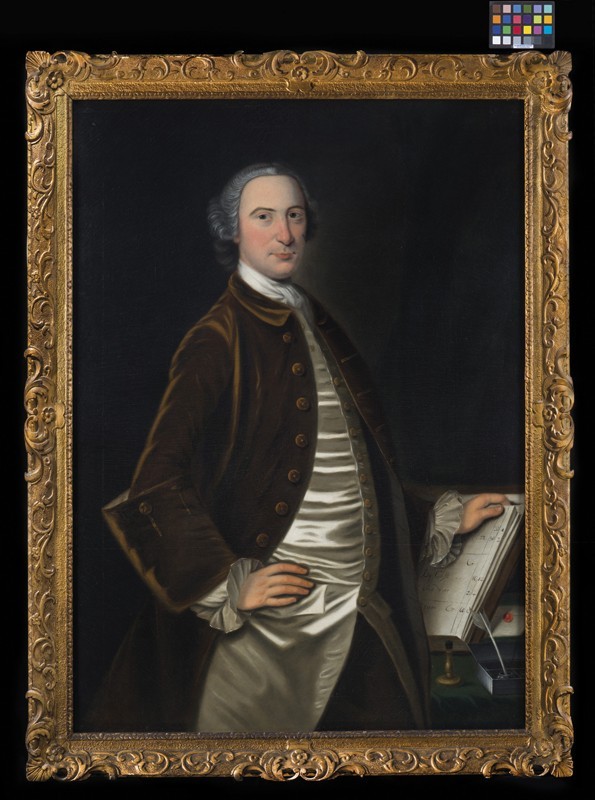
Frame on Lawrence Kilburn’s portrait of James Beekman, attributed to Stephen Dwight, New York City, 1762. White pine; gilded. 52 3/4" x 40". (Courtesy, New-York Historical Society; photo, Gavin Ashworth.) In the September 14, 1761, issue of the New-York Mercury, Dwight advertised an “Assortment of Picture Frames of the newest Fashions.” Like many carvers, Dwight probably imported frames in addition to making them.
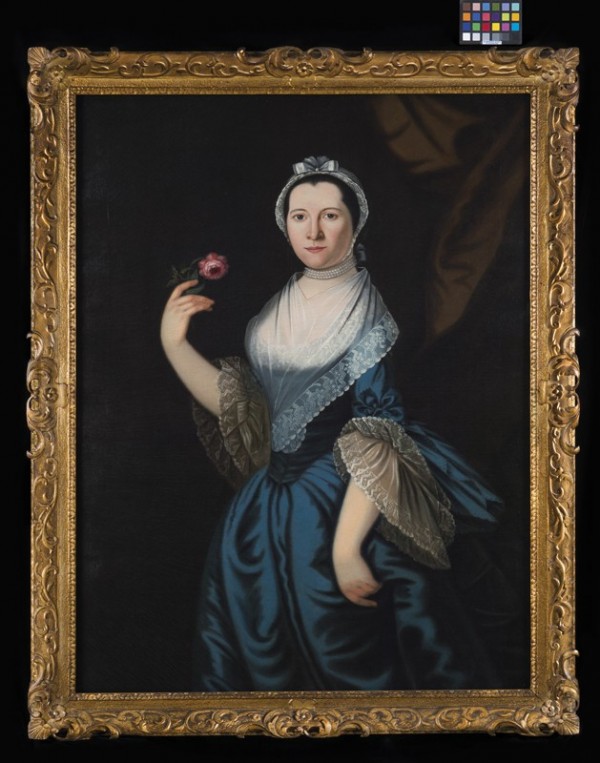
Frame on Lawrence Kilburn’s portrait of Jane (Keteltas) Beekman, attributed to Stephen Dwight, New York City, 1762. White pine; gilded. 52 3/4" x 40". (Courtesy, New-York Historical Society; photo, Gavin Ashworth.)
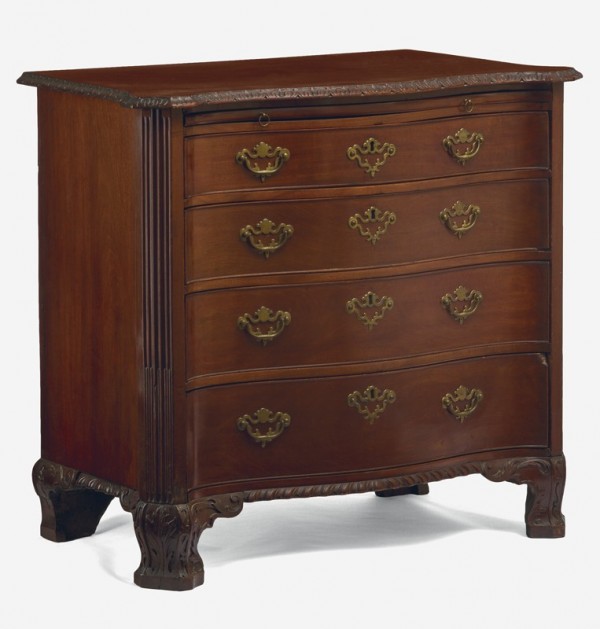
Chest of drawers with casework attributed to Thomas Brookman and carving attributed to Henry Hardcastle, New York City, 1750–1755. Mahogany with tulip poplar. H. 33 5/8", W. 37", D. 21 3/8". (Private collection; photo, Andrew Davis.)
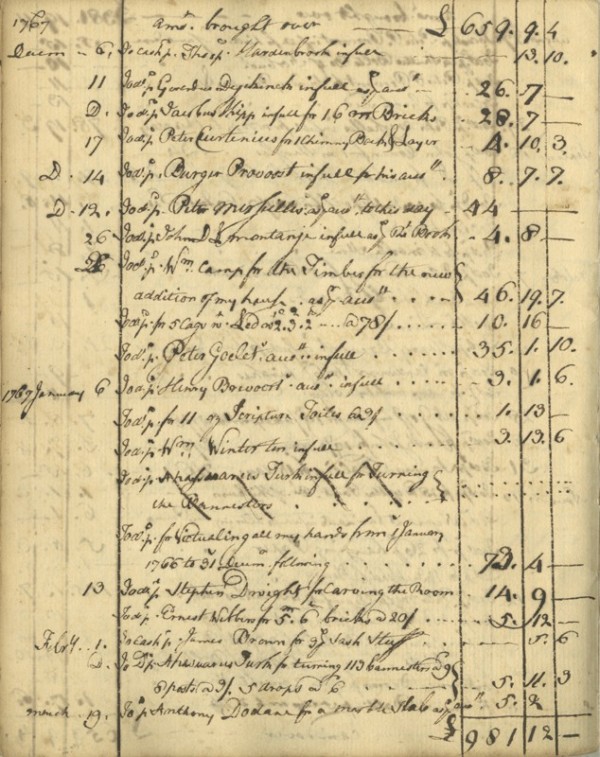
Entry from James Beekman’s daybook, January 6, 1767. (Courtesy, New-York Historical Society.)
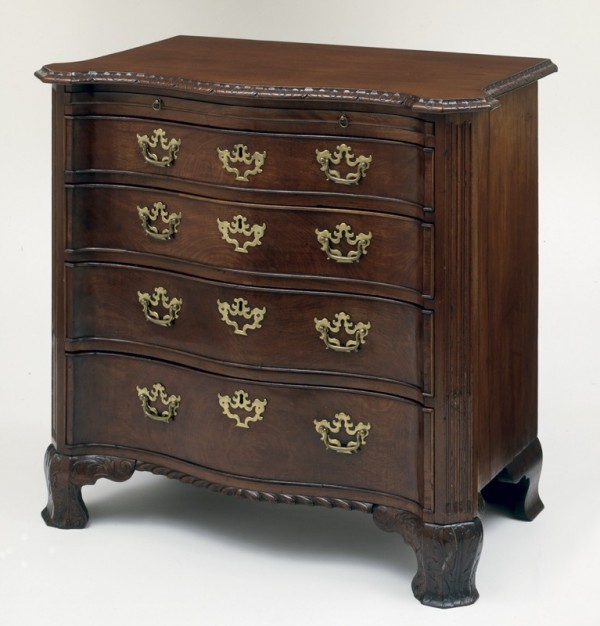
Chest of drawers with casework attributed to Thomas Brookman and carving attributed to Henry Hardcastle, New York City, 1750–1755. Mahogany with tulip poplar. H. 33", W. 35 1/2", D. 20 3/4". (Courtesy, Winterthur Museum.)
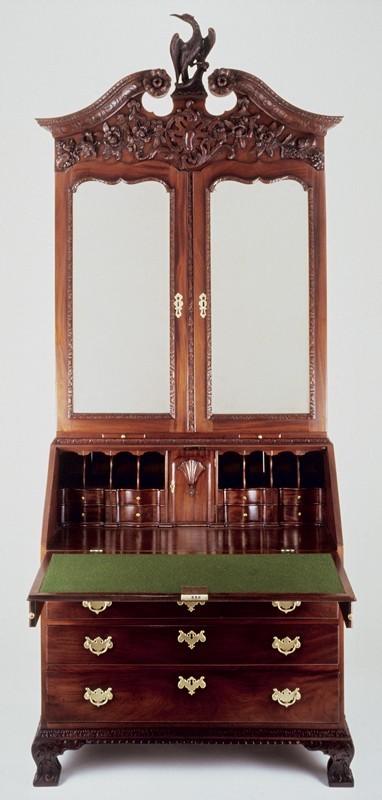
Desk-and-bookcase with casework attributed to Thomas Brookman and carving attributed to Henry Hardcastle, New York City, 1750-1755. Mahogany with tulip poplar and gum. H. 99 1/2", W. 45 1/2", D. 25". (Chipstone Foundation; photo, Gavin Ashworth.) The outermost portions of the pediment appliqué and heron ornament are restorations based on carved ornaments in Philipse Manor.

Details showing the feet of the chests of drawers illustrated in fig. 3 (left), the chest of drawers illustrated in fig. 5 (middle), and the desk-and-bookcase illustrated in fig. 6 (right). The carving on the desk-and-bookcase is in higher relief than that on the chests, but the outlining, modeling, and shading cuts on all of the comparable leaf forms are consistent with Hardcastle’s work. The shallow leafage on the feet of the chests also relates to the architrave carving on the overmantel in the first-floor parlor of Philipse Manor (fig. 8) and the knee carving on a card table attributed to Hardcastle.
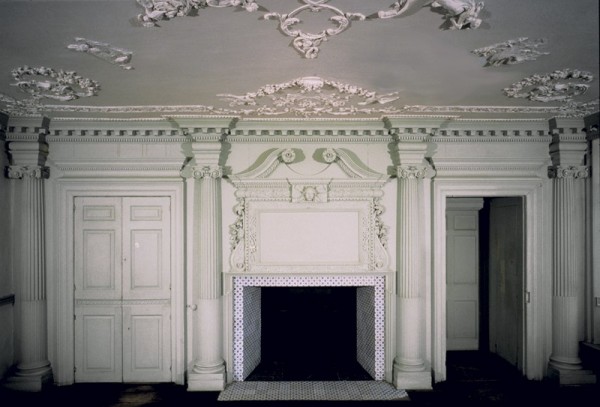
First-floor, southeast parlor, Philipse Manor, Yonkers, New York, ca. 1750. (Courtesy, Philipse Manor Hall State Historic Site, Yonkers, New York, New York State Office of Parks, Recreation and Historic Preservation; photo, Gavin Ashworth.)
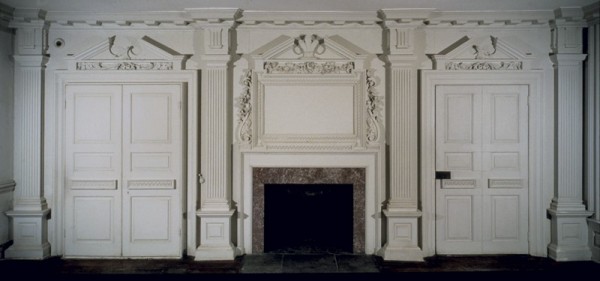
Second-floor, southeast parlor, Philipse Manor, Yonkers, New York, ca. 1750. (New York State Office of Parks, Recreation, and Historic Preservation; photo, Gavin Ashworth.)
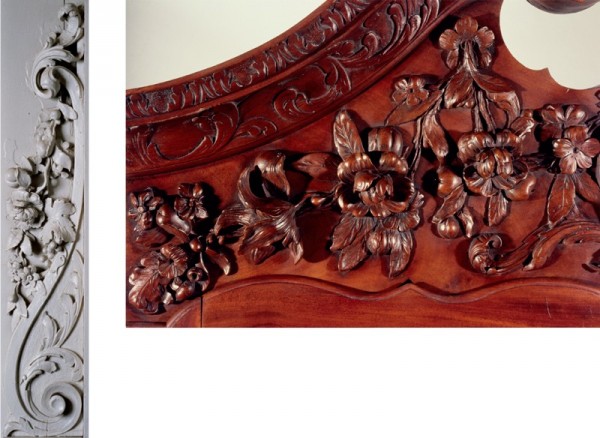
Details of the left side bracket on the chimneypiece illustrated in fig. 9 and the left side of the pediment appliqué on the desk-and-bookcase illustrated in fig. 6 (Photos, Gavin Ashworth.)
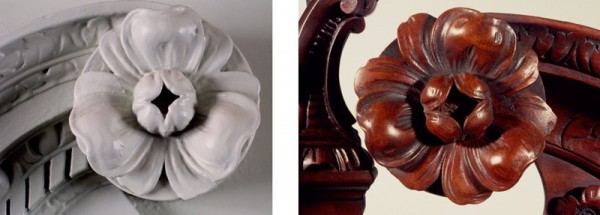
Details of the right rosette on the chimneypiece in the first-floor southeast parlor in Philipse Manor (fig. 8) and the right rosette on the pediment of the desk-and-bookcase illustrated in fig. 6. (Photos, Gavin Ashworth.)
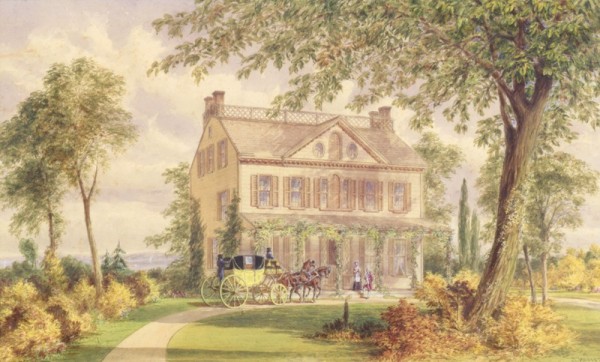
Abram Hosier, Mount Pleasant, New York City, 1874. Watercolor on paper. 15 1/2" x 26 1/4". (Courtesy, New-York Historical Society.)
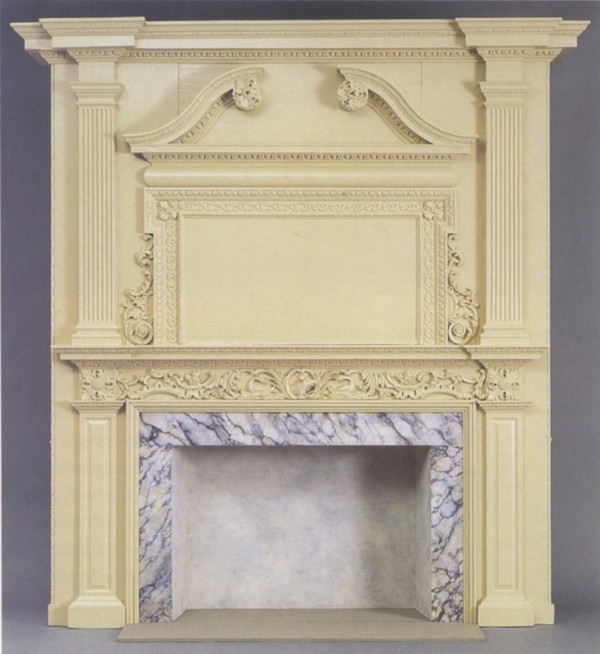
Chimneypiece from Mount Pleasant, carving attributed to Stephen Dwight, New York City, 1767. (Courtesy, New-York Historical Society; photo, Gavin Ashworth.)
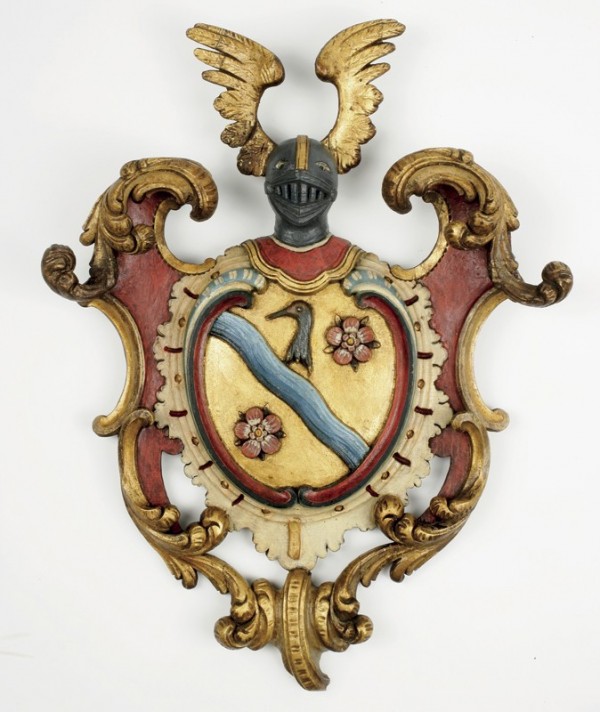
Beekman coat of arms, attributed to Stephen Dwight, New York City, ca. 1767. H. 21 1/4", W. 15", D. 3 1/2". (Courtesy, New-York Historical Society.)
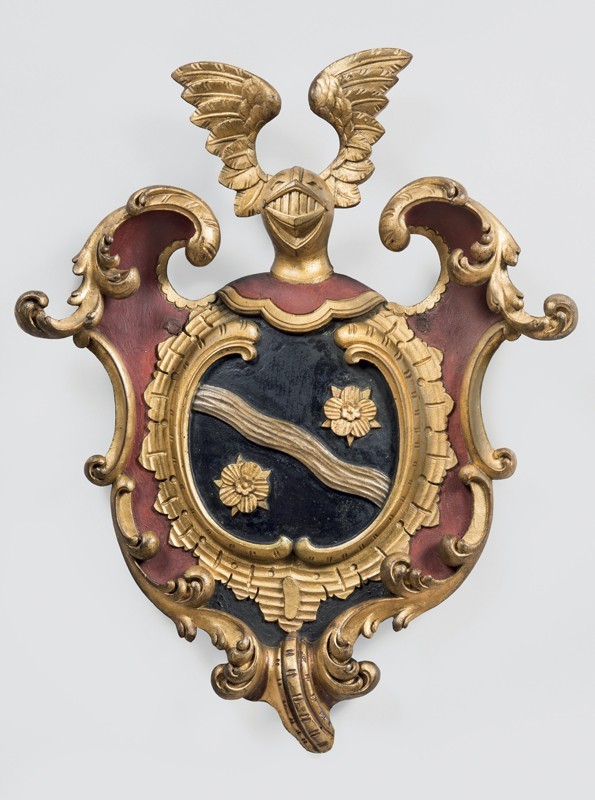
Beekman coat of arms, attributed to Stephen Dwight, New York City, ca. 1767. H. 21", W. 16 1/4", D. 3 1/2". (Courtesy, New-York Historical Society; photo, Gavin Ashworth.)
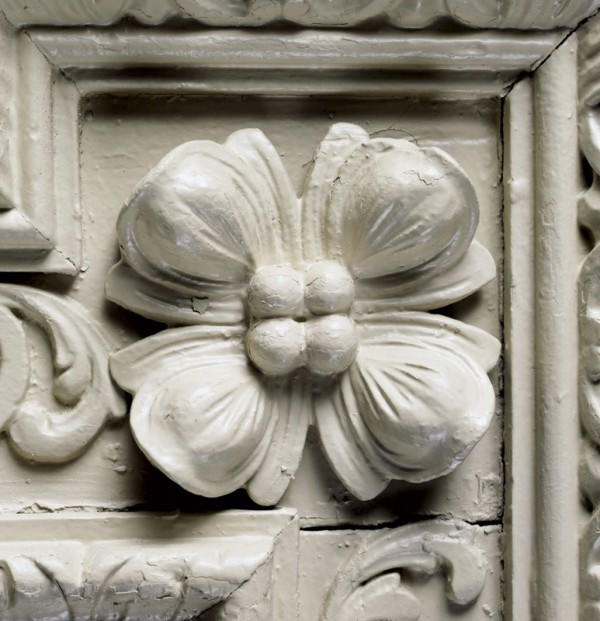
Detail showing the upper left rosette on the chimneypiece illustrated in fig. 13. (Photo, Gavin Ashworth.)
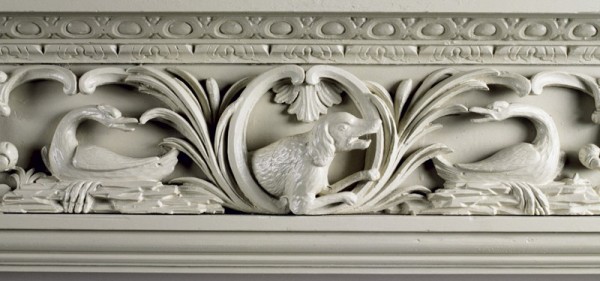
Detail of the frieze appliqué on the chimneypiece illustrated in fig. 13. (Photo, Gavin Ashworth.)
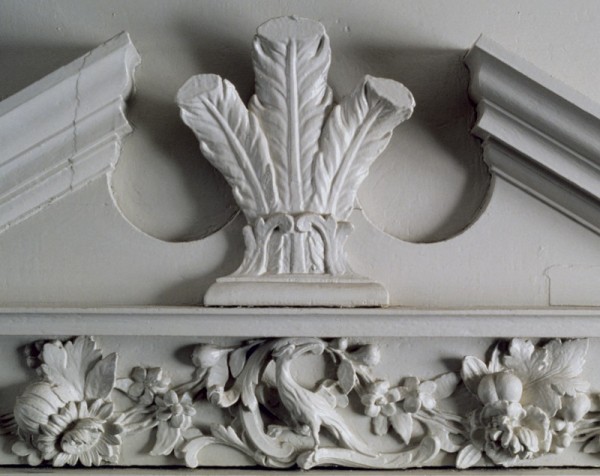
Detail of the frieze appliqué on the chimneypiece illustrated in fig. 9.
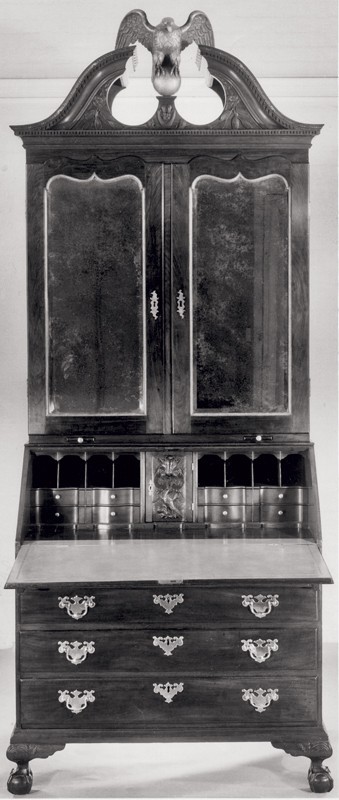
Desk-and-bookcase with casework attributed to Thomas Brookman and carving attributed to Henry Hardcastle or Stephen Dwight, New York City, ca. 1755. Mahogany with tulip poplar and gum. Dimensions not recorded. (Private collection; John Walton Antiques.)
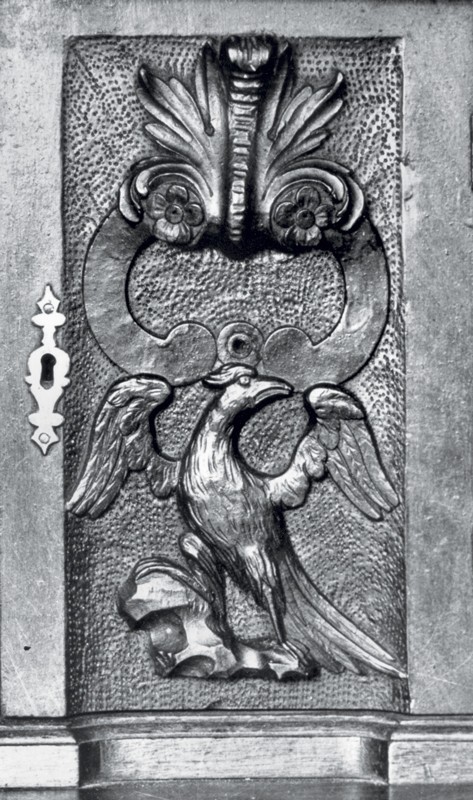
Detail of the prospect door of the desk-and-bookcase illustrated in fig. 19.
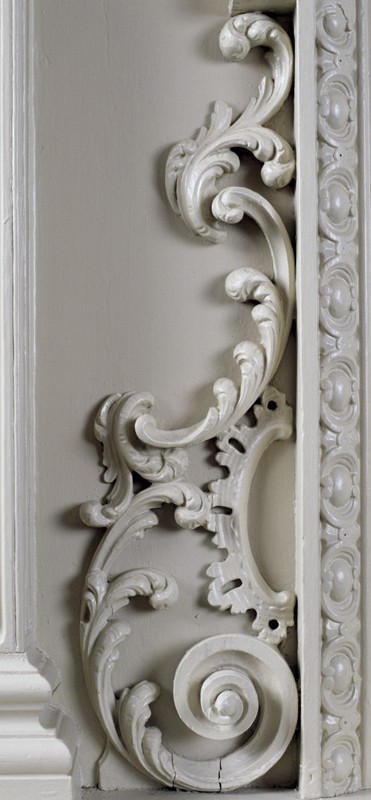
Detail of the left truss on the chimneypiece illustrated in fig. 13. (Photo, Gavin Ashworth.)
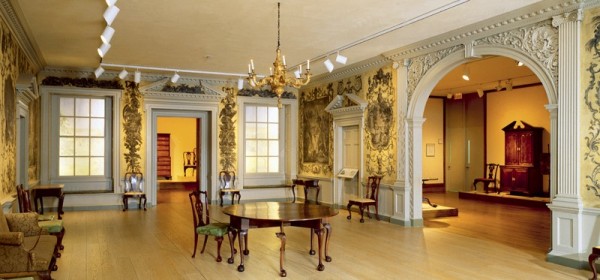
Entrance hall from Van Rensselaer Manor, Albany, New York, 1765–1768. (Courtesy, Metropolitan Museum of Art.)
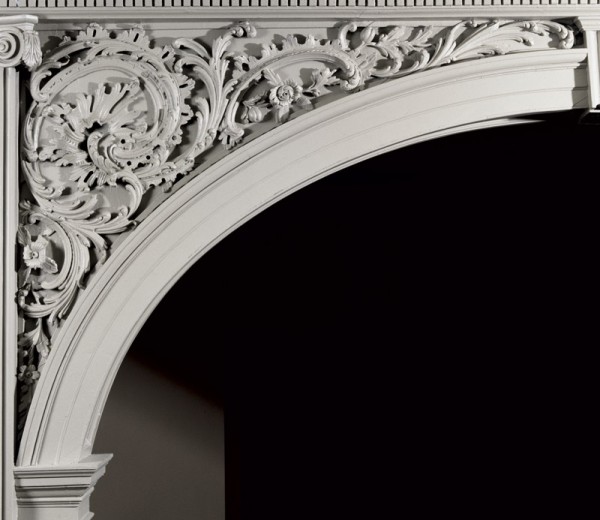
Detail of a spandrel appliqué in the entrance hall illustrated in fig. 22. (Photo, Gavin Ashworth.)
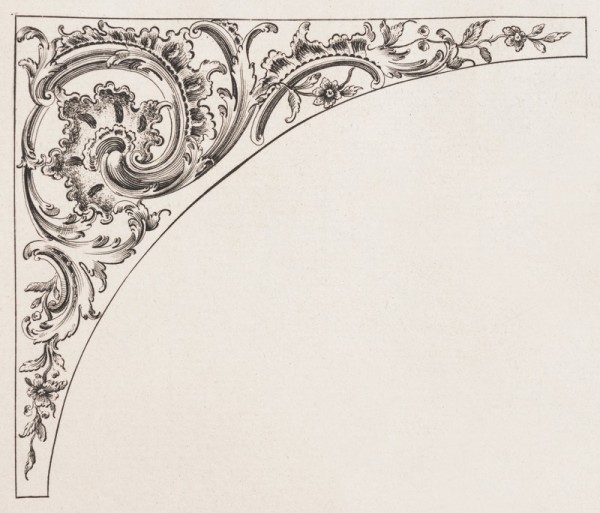
Design for a spandrel illustrated on plate 10 of Matthias Lock and Henry Copland’s A New Book of Ornaments (first ed., 1752). (Courtesy, Winterthur Museum.)
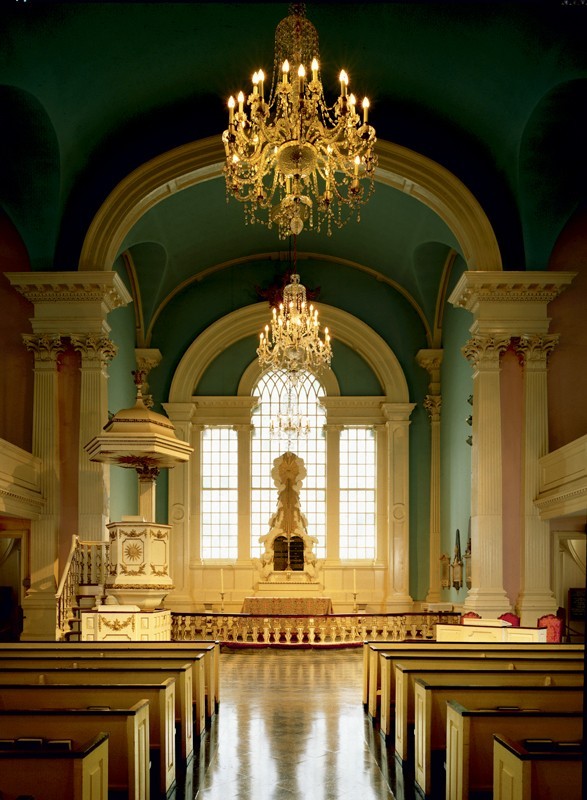
Interior of St. Paul’s Chapel, Broadway and Fulton Street, New York City, 1764–1766. (Courtesy, St. Paul’s Parish of Trinity Church; photo, Gavin Ashworth.)
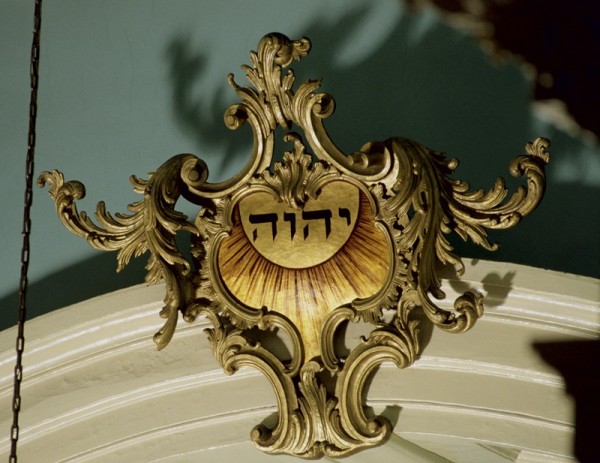
Cartouche over the Venetian window illustrated in fig. 25. (Photo, Gavin Ashworth.)
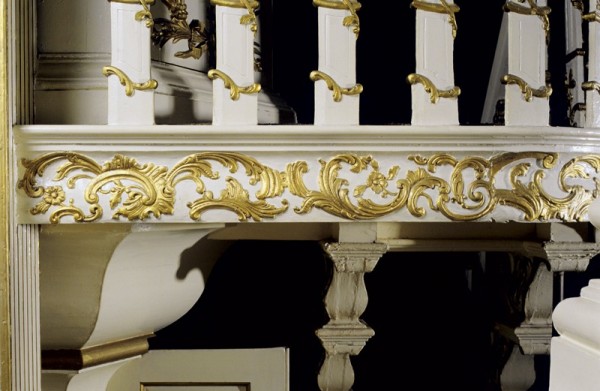
Detail showing the frieze of the pulpit stair in St. Paul’s Chapel. (Photo, Gavin Ashworth.)
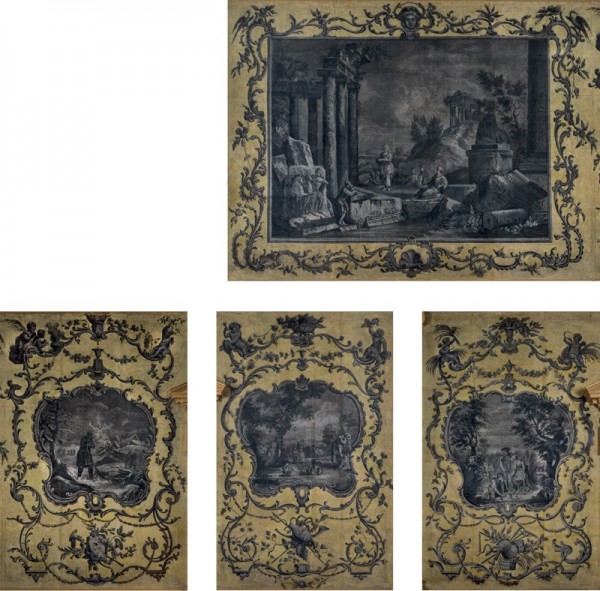
Wallpaper panels in the entrance hall from Van Rensselaer Manor, Albany, New York, installed 1768. (Courtesy, Metropolitan Museum of Art.)
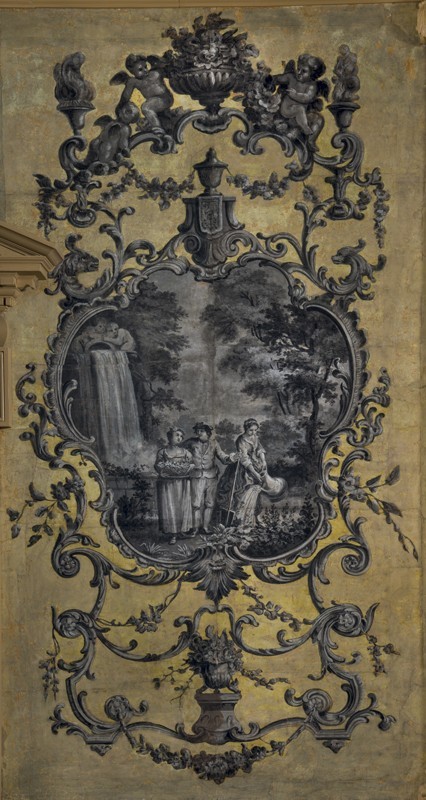
Wallpaper panel in the entrance hall from Van Rensselaer Manor, Albany, New York, installed 1768. (Courtesy, Metropolitan Museum of Art.)
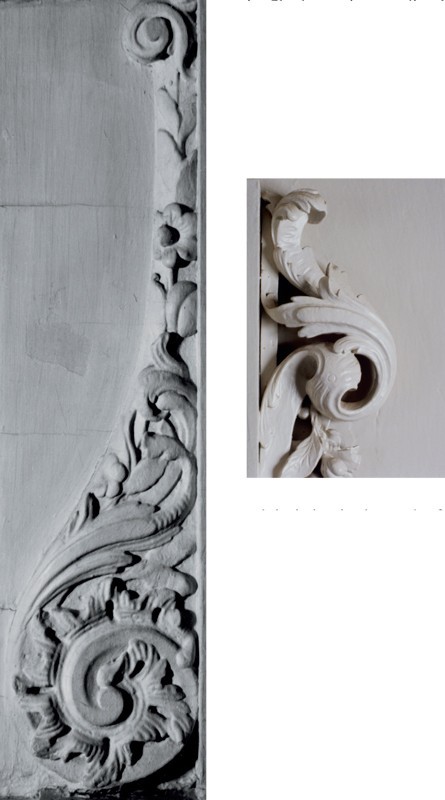
Details showing leaves on the trusses from Hampton Place (left) and Philipse Manor (right).
